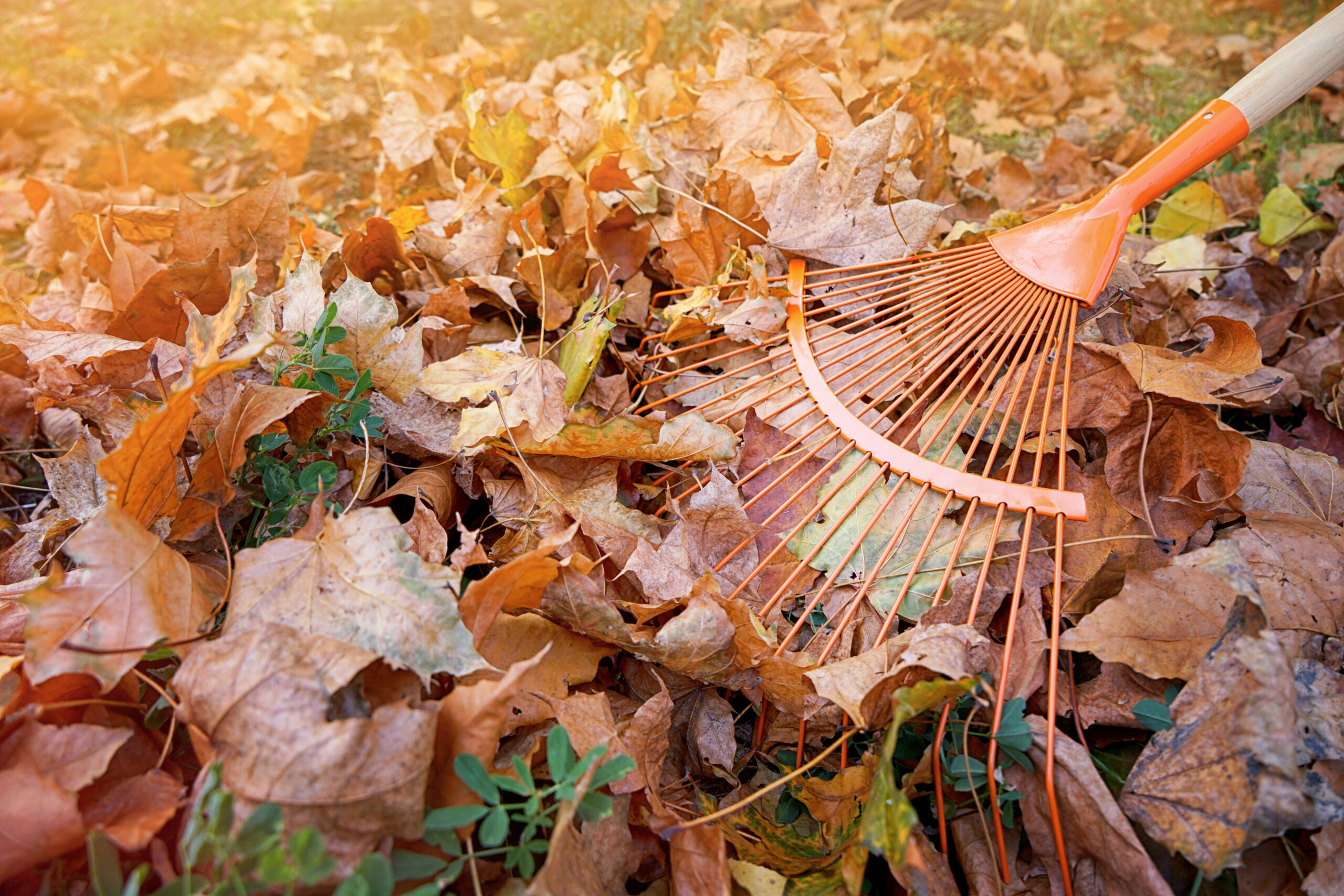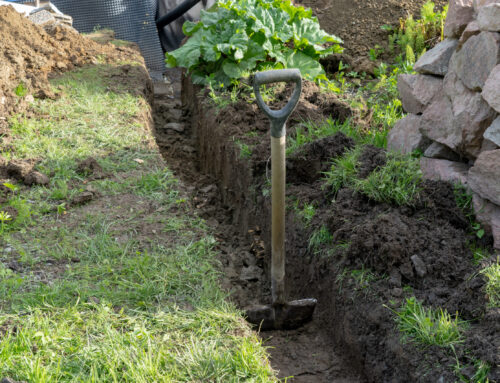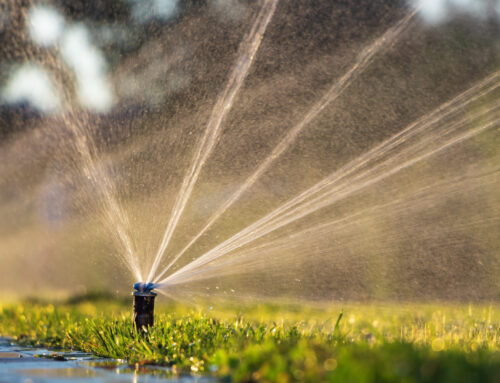Winter is quickly approaching, and with it comes the need to prepare your lawn for the colder temperatures. While you might think that lawn care is only necessary during the warmer months, neglecting your lawn during winter can have long-lasting effects. Fortunately, with a few simple steps, you can ensure that your lawn stays healthy and vibrant, ready to bounce back in the spring. In this comprehensive guide, we will walk you through the essential winter lawn care practices that will keep your lawn in top shape.
Clearing Leaves and Debris
Before the first snowfall (yes, even Dallas-Fort Worth gets snow and ice), it is crucial to remove fallen leaves, twigs, and other debris from your lawn. This step is essential as debris can block sunlight and airflow, leading to the growth of mold and fungus. Raking up leaves and removing debris allows your lawn to breathe and prevents potential damage. Make sure to clear the entire lawn thoroughly, paying attention to hidden corners and edges.
The Importance of Raking
Raking is not only about removing unsightly leaves; it also helps prevent diseases and keeps your lawn healthy. When leaves accumulate on the ground, they create a thick layer that blocks sunlight and traps moisture. This environment becomes a breeding ground for fungal diseases that can harm your grass. By regularly raking leaves, you allow your lawn to receive adequate sunlight and reduce the risk of diseases.

Proper Disposal
Once you have collected the leaves and debris, it is essential to dispose of them properly. You can compost the leaves if you have a compost pile, as they can decompose and provide nutrients for your garden. Alternatively, you can bag the leaves and put them out for municipal pickup. Avoid leaving piles of leaves on your lawn as they can suffocate the grass underneath.
Fertilizing for Winter Resilience
Fertilizing your lawn before winter sets in is crucial for its overall health and resilience. A well-fertilized lawn will have stronger roots and better withstand the cold temperatures. Follow these steps to ensure that your lawn receives the nutrients it needs:
Choosing the Right Fertilizer in Texas
When selecting a fertilizer for winter application, opt for one that is high in nitrogen and potassium. These nutrients promote root growth and provide essential nourishment for your grass. Look for a slow-release fertilizer that will gradually release nutrients over time, ensuring your lawn remains healthy throughout the winter months.
Fertilizer Application in Fort Worth
It is essential to apply the fertilizer correctly to maximize its effectiveness. Follow the instructions on the fertilizer packaging regarding the recommended application rate and method. Generally, it is best to use a broadcast spreader to ensure even distribution. Take care not to overlap the application areas to avoid excessive fertilization, which can harm your lawn.
Timing Is Key
Timing is crucial when it comes to fertilizing your lawn for winter. It is recommended to fertilize your lawn in late fall, about four to six weeks before the first frost. This timing allows the grass to absorb the nutrients and strengthen its roots before the cold weather sets in. Be mindful not to fertilize too late in the season, as this can lead to excessive growth that may not have time to harden off before winter.
Protecting Your Lawn from Winter Damage
Winter weather can be harsh on your lawn, but with proper protection, you can minimize damage and ensure a healthier lawn in the spring. Consider the following measures to safeguard your lawn from the cold:
Repairing Damaged Areas
Before winter arrives, take the time to assess your lawn for any damaged areas. Repairing these spots is crucial as they can worsen during the winter months. Reseeding or patching bare areas will promote new growth and prevent further damage.
Applying a Winterizing Lawn Treatment in Fort Worth
A winterizing lawn treatment is an excellent way to protect your grass from freezing temperatures. These treatments are often formulated to strengthen the grass and provide added protection. Consult with your local landscaping professional to determine the best winterizing treatment for your lawn. We will consider factors such as your grass type, climate, and specific needs.
Using Protective Covers
In areas with particularly harsh winters, you might consider using protective covers for your lawn. Covers such as tarps or burlap can provide an extra layer of insulation and shield the grass from extreme cold and frost. However, it is important to note that this measure may not be necessary for all lawns. Consult with a lawn care professional to determine if using covers is appropriate for your specific situation.
Additional Winter Lawn Care Tips
In addition to the essential steps mentioned above, here are a few more tips to keep your lawn in top shape during the winter months:
- Mowing: Before winter arrives, give your lawn a final mow, ensuring that the grass is at a suitable height. Cutting the grass too short can make it more susceptible to winter damage.
- Watering: While it may seem counterintuitive, it’s still important to water your lawn during winter if there is a dry spell. Deep watering once every few weeks will help prevent the grass from drying out.
- Avoid Walking on Frozen Grass: Walking on frozen grass can cause damage, leading to brown and dead spots. Try to stay off the lawn when it is frozen to prevent unnecessary harm.
- Snow Removal: When clearing snow from your driveway or walkways, be cautious not to pile it onto your lawn. Excessive snow buildup can smother the grass and cause damage.
By following these winter lawn care practices, you can ensure that your lawn remains healthy and ready to thrive when spring arrives. Remember, consulting with a professional landscaper can provide tailored advice based on your specific lawn’s needs.
For expert winter lawn care services in Keller, Texas, look no further than R & O Landscape Services. With decades of combined experience, our team is dedicated to providing top-notch lawn care throughout the year. Contact us at 817-944-4592 to learn more about how we can help you prepare your lawn for the winter months ahead.




